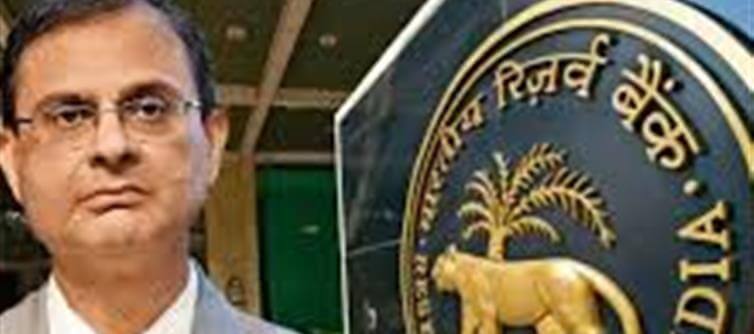
In a recent meeting, the Reserve bank of India (RBI), led by governor Sanjay Malhotra, made several announcements aimed at strengthening the country's economic landscape. While the Monetary Policy Committee (MPC) chose to maintain the repo rate, these updates reflect RBI's proactive measures to invigorate economic growth and improve liquidity across sectors. Here are the 5 key announcements that are expected to bring more money into the indian economy:
1. Increased Liquidity Support to Banks
To support economic recovery and ensure that banks have enough liquidity to meet the growing demand for credit, the RBI has increased liquidity support for the banking sector. This move is aimed at encouraging banks to lend more to individuals and businesses, which can directly stimulate investment and consumption in the economy.
· Impact on Economy: By ensuring that banks are adequately funded, this will lead to lower borrowing costs, and more loans for businesses, infrastructure projects, and consumers.
2. Refinement of Inflation Targeting Measures
RBI has strengthened its inflation-targeting framework, which aims to keep inflation within a manageable range. The central bank intends to monitor inflation closely and use its policy tools efficiently to keep prices stable.
· Impact on Economy: A stable inflation rate will provide confidence to investors and consumers, keeping purchasing power intact and supporting long-term economic planning.
3. Focused Support for MSMEs
The RBI has announced targeted measures to support Micro, Small, and Medium Enterprises (MSMEs). These measures include soft loans, extended repayment terms, and easier access to credit for MSMEs, which are the backbone of India's economy.
· Impact on Economy: By boosting MSMEs, which are major employment generators, RBI aims to fuel job creation and local manufacturing, stimulating overall economic activity.
4. Enhanced wallet PLATFORM' target='_blank' title='digital-Latest Updates, Photos, Videos are a click away, CLICK NOW'>digital Payment Infrastructure
RBI's move to improve the digital payments infrastructure is expected to lead to more efficient money flow in the economy. With the continued expansion of UPI (Unified Payments Interface), digital payments will increase, making transactions faster and more transparent.
· Impact on Economy: A more robust wallet PLATFORM' target='_blank' title='digital-Latest Updates, Photos, Videos are a click away, CLICK NOW'>digital payment system will lower transaction costs, increase financial inclusion, and help small businesses reach a larger customer base. It will also make it easier for consumers to spend and save money.
5. Support for Green and Sustainable Finance
RBI has also outlined plans to promote green and sustainable finance, which includes incentivizing banks and financial institutions to fund eco-friendly and sustainable projects. This will help the country meet its climate goals while also fostering new growth avenues.
· Impact on Economy: Increased funding for green initiatives will create new jobs in renewable energy, green infrastructure, and other sustainable industries, while also attracting global investors focused on environmentally conscious projects.
Conclusion:
The RBI's recent announcements represent a multifaceted approach to economic growth, focusing on liquidity support, inflation management, MSME growth, digital payments, and sustainable finance. While the repo rate remains unchanged, these measures are designed to improve the availability of credit, reduce transaction costs, and encourage long-term investments, which will ultimately lead to a more dynamic and resilient economy.
As these initiatives take root, the indian economy is likely to see a boost in consumer spending, business investment, and employment opportunities, all of which are critical to maintaining strong economic momentum in the months ahead.
Disclaimer:
The views and opinions expressed in this article are those of the author and do not necessarily reflect the official policy or position of any agency, organization, employer, or company. All information provided is for general informational purposes only. While every effort has been made to ensure accuracy, we make no representations or warranties of any kind, express or implied, about the completeness, reliability, or suitability of the information contained herein. Readers are advised to verify facts and seek professional advice where necessary. Any reliance placed on such information is strictly at the reader’s own risk..jpg)




 click and follow Indiaherald WhatsApp channel
click and follow Indiaherald WhatsApp channel